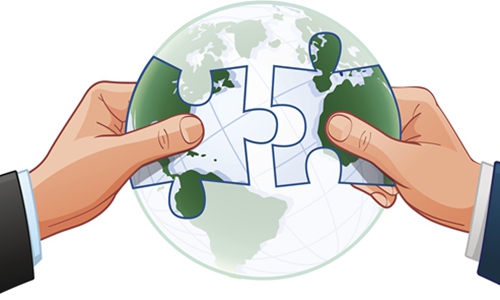HOME >> OPINION
West should stop criticizing China and learn from its achievements
By Sun Chenghao Source:Global Times Published: 2020/4/1 16:23:40

Photo: VCG
As the COVID-19 pandemic continues to rage around the world, some in the West are saying that sooner or later there will be a rupture in China's relations with the West. This seems melodramatic.
China is currently assisting other countries, including economically and with medical supplies. This being the case, China's relations with the West will not be fractured.
Saying that China-West relations will break is simply venting sentiment. Populism and xenophobia in the West, especially in the US, was already rising before the coronavirus pandemic. If that sentiment is combined with terms such as "Chinese virus" and "China's atonement," some people may use China to further hype populism in their own countries. Others who oppose globalization may become more against it. If the US and Europe do not control such public opinion, the consequences may be serious.
The epidemic situation in the US and some European countries is severe. The number of confirmed cases has reached more than 189,000 in the US as of April 1, according to figures released by the Coronavirus Resource Center at Johns Hopkins University. If some Westerners stick to their sentiment and vent their emotions, it will not help the West's fight against the virus.
China's experience is worth noting. Judging by the current situation, some Western countries are actually learning China's experience, such as launching stricter quarantine measures and building makeshift hospitals to try to cut off the spread.
The West still lacks adequate medical protection measures and it will need China's help. The West is also facing a shortage of medical materials, and thus cooperating with China to fight the epidemic is an inevitable choice.
Smearing China does not benefit the political situation in some Western countries. Both Donald Trump becoming the US president and the success of Brexit reflect rising populism on both sides of the Atlantic. Bringing China into the equation will only amplify these trends, and it will destabilize liberal international order long supported by the West.
China and the West need to cooperate in fighting the COVID-19 and work on the resumption of production in the future. Trump confirmed on Monday that the US has received medical supplies from China and Russia.
As a large manufacturing country, China can help other countries. China has already offered help to Europe and the US. Jack Ma Yun, founder of Chinese internet giant Alibaba, has also donated 1 million face masks and some 500,000 test kits to the US.
Trump has invoked the Defense Production Act. It is possible for the US industrial chain to produce enough defense supplies, but in terms of medical supplies, it is not enough to meet the needs of the over 300 million Americans. In this case, the US will have to cooperate with China even if it does not want to.
China has been sharing its experience and lessons with the rest of the world. Besides, Zhong Nanshan, head of China's National Health Commission's high-level expert group, recently shared China's experience in a video conference with US experts. China has done a good job in information sharing.
But some Western countries have their own concerns, such as the UK's announced "herd immunity." The UK knows China's experience in fighting the epidemic, but it is just unwilling to choose the fast and strict quarantine measure. This is related to the West's so-called democratic system. Similarly, the US federal government's policies are not in line with those of state governments, and thus it is difficult to find unified coordination.
China has shared its experience, but many Western countries are just not willing to follow. When the pandemic is over, these countries will find that it was not China that had led to the severe conditions in the US and Europe, but their own wrong judgments and choices.
The author is an assistant research fellow at the Institute of American Studies, China Institutes of Contemporary International Relations. opinion@globaltimes.com.cn
Posted in: VIEWPOINT